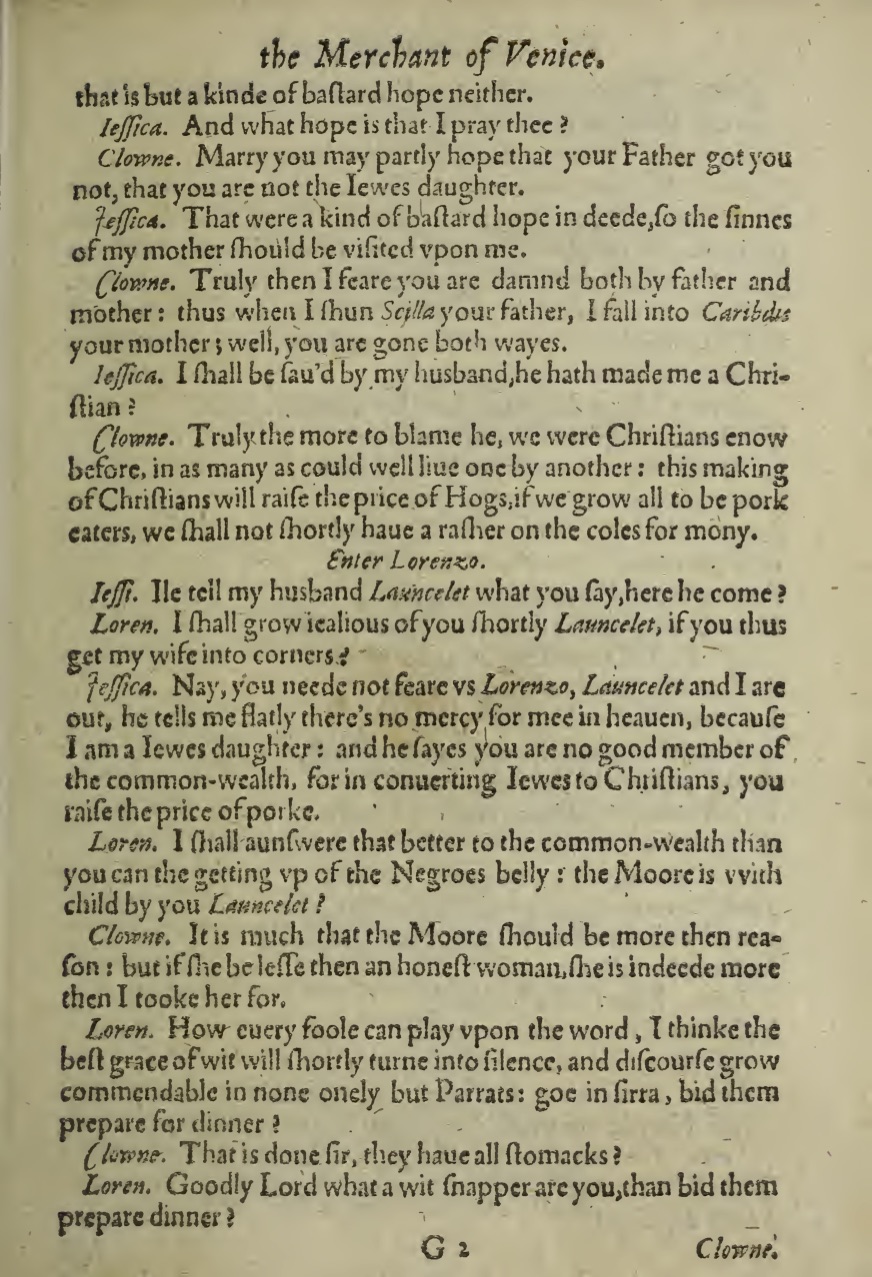that is but a kind of bastard hope neither.
Jessica: And what hope is that I pray thee?
Clown: Marry you may partly hope that your father got you not, that you are not the Jew's daughter.
Jessica: That were a kind of bastard hope indeed, so the sins of my mothershould be lifted upon me.
Clown: Truly then I fear you are damned both by father and mother: thus when I shun Scilla your father, I fall into Caribdus your mother well, you are gone both ways.
Jessica: I shall be saved by my husband, he has made me a Christian?
Clown: Truly the more to blame he, we were Christians now before, in as many as could we live one by another: this making of Christians will raise the prince of Hogs, if we grow all to be pork eaters, we shall not shortly have a rather on the coals for money.
Enter Lorenzo.
Jessi: I'll tell my husband Launcelet what you say, here he comes?
Loren: I shall grow jealous of you shortly Launcelet, if you thus get my wife into corners?
Jessica: No, you need not fear us Lorenzo, Launcelet, and I are out, he tells me flatly there's no mercy for me in heaven, because I am a Jew's daughter: and he says you are no good member of the common-wealth, for in converting Jews to Christians, you raise the price of pork.
Loren: I shall answer that better to the common-wealth than you can the getting up of the Negroes belly: the Moore is with child by you Launcelet?
Clown: It is much that the Moore should be more than reason: but if she is less than an honest woman, she is indeed more than I took her for.
Loren: How every fool can play upon the word, I think the belt grace of wit will shortly turn into silence, and discourse grow commendable in none only but Parrats: go in sirra, bid them prepare for dinner?
Clown: That is done sir, they have all stomachs?
Loren: Goodly Lord what a wit snapper are you, then bid them prepare for dinner?
